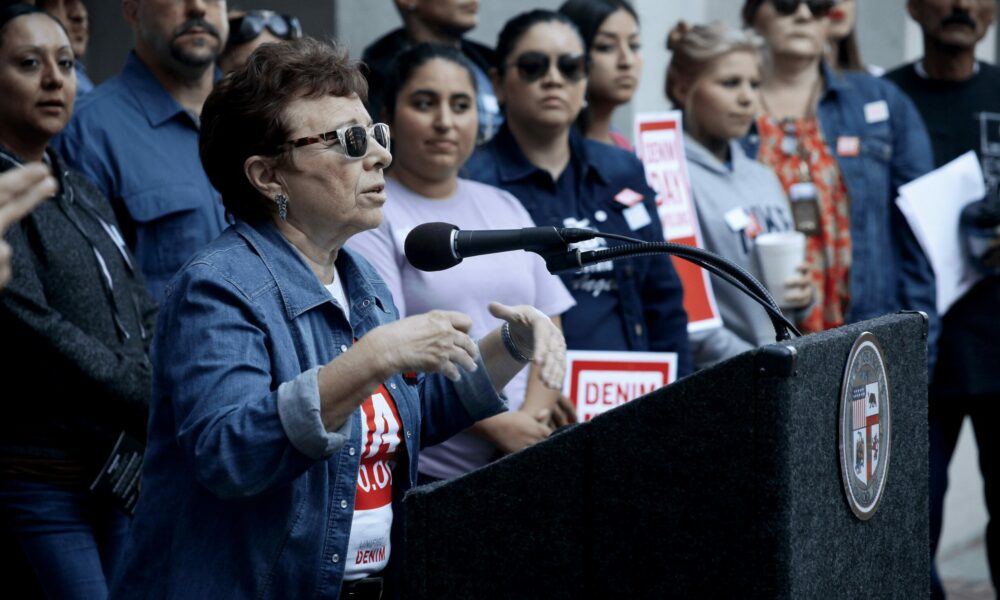

Today we’d like to introduce you to Patti Giggans
Hi Patti, we’re thrilled to have a chance to learn your story today. So, before we get into specifics, maybe you can briefly walk us through how you got to where you are today?
I have been at POV for over 40 years and one of the reasons I have stayed so long and what I am grateful for is that the values of the organization align with my own personal values.
I was really influenced by growing up in the 60s during the rights movements – civil rights, LGBTQ, women’s rights. I was an early feminist. I was raised in a traditional Italian-American family in Long Island, NY and grew up in an Italian restaurant. My upbringing taught me hard work and dedication, but I was also able to see the restrictions and impediments that my mother and the other women in my family went through as I was growing up. I developed a sensitivity to inequality. Traditionally, the focus was on the boys in the family, not on the girls. It would have been a real feather in the cap of my family if I had become a nun, but I didn’t want to become a nun, and thought if I went into the church, I’d want to be a priest. This was some of my earlier out-of-the-box thinking.
I went to SUNY at Buffalo, which was known as the Berkeley of the East, and I was involved in protests there. My first job out of college was a caseworker for the Dept. of Social Services in New York City. From there, after I got married, my then-husband became a network news journalist/foreign correspondent. We lived in Vietnam and Paris and got to travel around the world. I got to see the world and develop a larger view than my Long Island upbringing provided.
I lived in Vietnam during the Vietnam War and began martial arts training in Taekwondo. After moving to Paris, I switched to Japanese style. I was the only woman in an all-male martial arts school. My Japanese Sensei asked me why women don’t stay and I told him honestly that the male students were not very welcoming. He then offered me the chance to teach a class for women which might make the experience less intimidating. Teaching karate to women under the tutelage of my sensei was a turning point for me. When I moved back to the United States and came to Los Angeles with my kids, I arrived with the idea of teaching karate to women, which I did by starting Karate Women School for Movement and Martial Arts in 1978 – the first martial arts school for women in Southern California. We then started Karate Kids because I wanted my children to be able to take care of themselves – and this was before the Karate Kid movie came out!
Because I was teaching karate for women and self-defense for women and kids, I was tapped by a member of Peace Over Violence (known then as LACAAW), the first sexual assault and domestic violence agency in the country, to teach their women’s self defense instructors. It was a small agency at the time, and a couple of years after that I became the Executive Director. And I never left! I have been at POV for forty years and the agency has grown from the initial 5 staff members to 70, and our programs have expanded. We were and are very innovative in bringing the issues of sexual and domestic violence into society’s awareness. I have spent a large part of my life learning and teaching about the subject of violence against women and all peoples. The feminist and humanist values at POV align with my own and that is probably one of the reasons I have stayed so long with the agency.
Can you talk to us a bit about the challenges and lessons you’ve learned along the way. Looking back would you say it’s been easy or smooth in retrospect?
Nothing worth doing is easy. As a woman growing up with an Italian-American family in Long Island, I felt firsthand the pressure to conform to societal expectations. Having the opportunity to travel the world with my family broadened my horizons and added to the influence of the Civil Rights Movement in my way of thinking. My martial arts training helped me develop confidence, boldness, and strength–and independence of mind. I learned not to be subject to propaganda or groupthink, a lesson that has served me well as a community leader and advocate against violence.
When I was hired to be the Executive Director at POV (formerly LACAAW), I did not necessarily feel prepared for such a big job. I had to build the plane while flying it–I started by enrolling in a Nonprofit Management Masters program at the University of San Francisco. Figuring out how to effectively run the agency was a challenge, but I was able to succeed through my own passion and determination as well as the powerful support of my colleagues, contemporaries, and community.
I have had struggles as well as triumphs in my long career as the Executive Director of Peace Over Violence. For one, getting society to take sexual and domestic violence seriously has always been an uphill battle. As an appointed commissioner on the LASD Oversight Commission, I have had the opportunity to advocate responsibility and constitutionality. Helping systems work better and more fairly for victim survivors as well as our diverse LA communities is a passion of mine. Challenging the status quo is not easy, and you might find yourself in the hot seat as a change agent, but the change is always worth the effort.
Can you tell our readers more about what you do and what you think sets you apart from others?
Peace Over Violence is known for its longstanding innovative, cutting-edge interventions and healing modalities. We are unique in that we offer comprehensive wraparound services to victim survivors of sexual assault, domestic violence, child abuse, and stalking, including our 24-hour crisis hotline, trauma-informed counseling, group therapy, case management, housing and legal assistance, and accompaniment for survivors through the aftermath of their abuse or assault (including in court and at the hospital). This ensures that survivors don’t have to endure their trauma alone and recovery alone. We have always specialized in the prevention of violence with programs like Empowerment Self Defense and Safety, In Touch With Teens relationship violence prevention curriculum (which is taught in districts across the country), and our TRIUMPH model offering a menu of healing modalities including Healing Arts, Trauma-Informed Yoga, and Neurofeedback, along with standard therapies.
Networking and finding a mentor can have such a positive impact on one’s life and career. Any advice?
It’s important that you have people, whether mentors, peers, colleagues, etc, who see your qualities and what you have to offer and encourage you. As a mentor, I find that the mentor/mentee relationship is a two-way street and that mentors often learn and grow through the process of mentoring. It’s important to have people that you respect and can work with to solve problems, and people with whom you can be your true self.
Pricing:
- As we are a nonprofit, we provide services free of charge to survivors, their families, and the diverse community of Los Angeles. These services include but are not limited to:
- 24/7 LA Rape & Battering Hotline: 626.793.3385 | 310.392.8381 | 213.626.3393
- Case management & accompaniment for survivors
- Trauma-informed 1-on-1 and group counseling
- Housing assistance
Contact Info:
- Website: https://peaceoverviolence.org
- Instagram: https://www.instagram.com/peaceovrviolnce/
- Facebook: https://www.facebook.com/PeaceOverViolence/
- Other: https://linktr.ee/peaceoverviolence
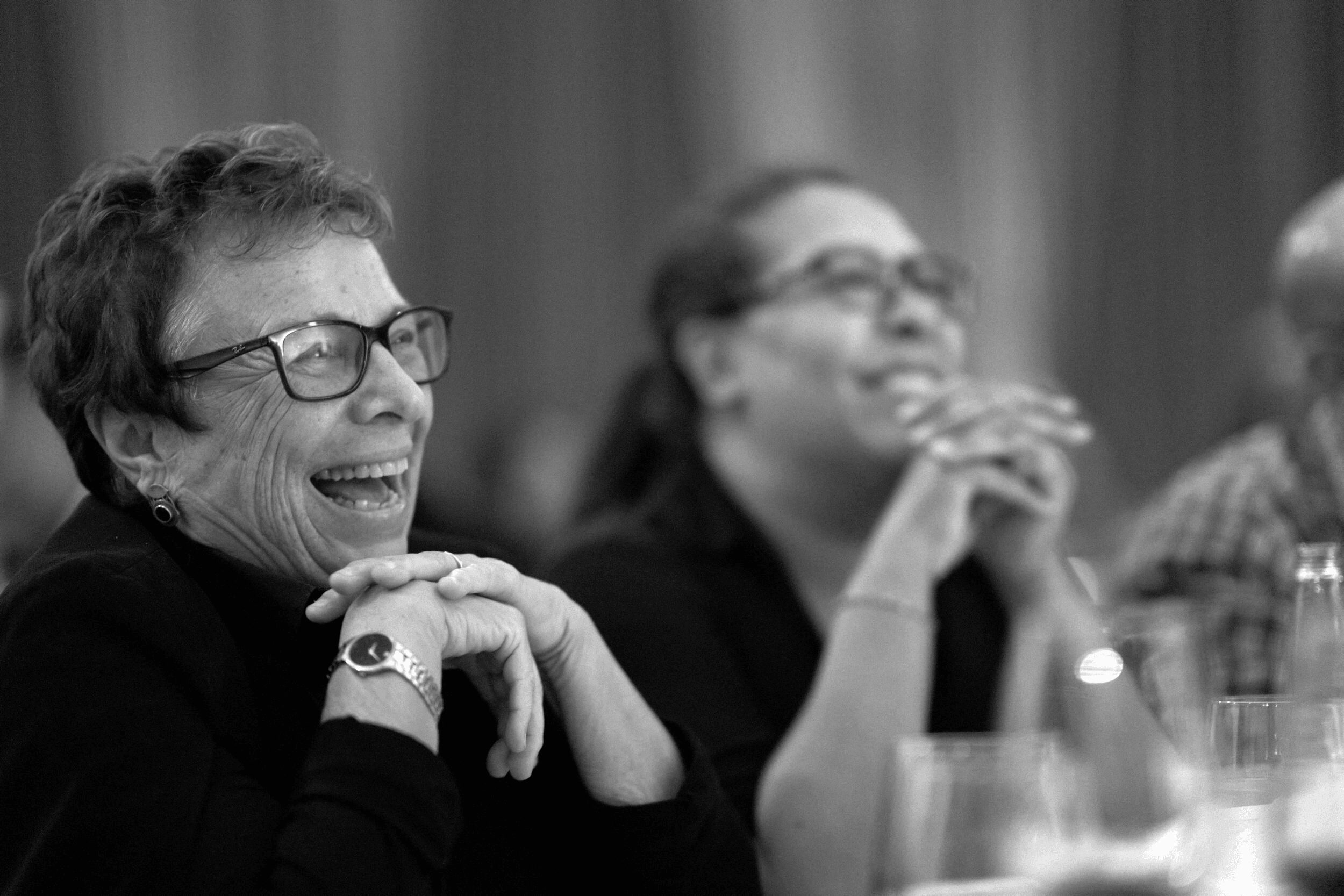
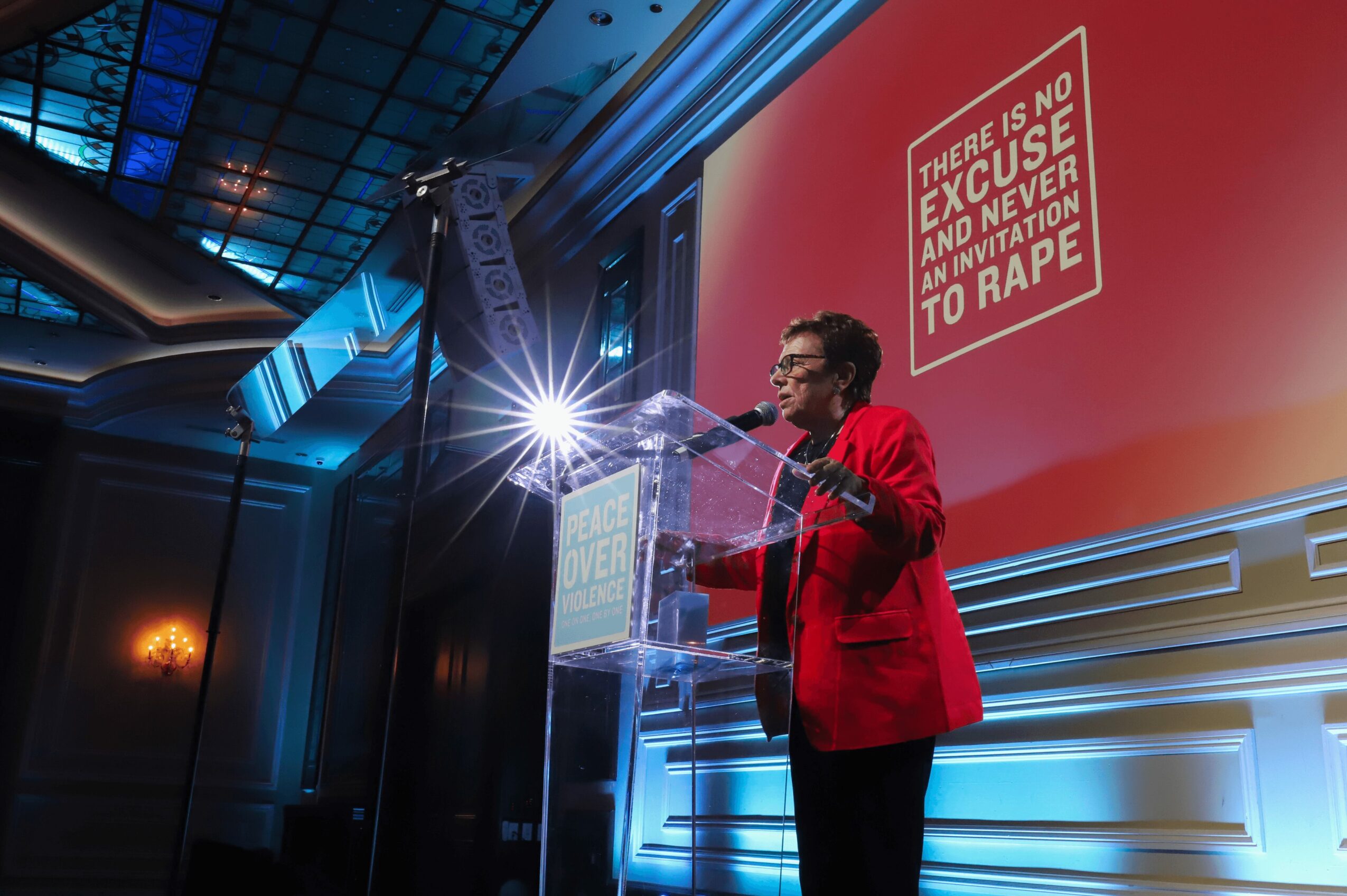
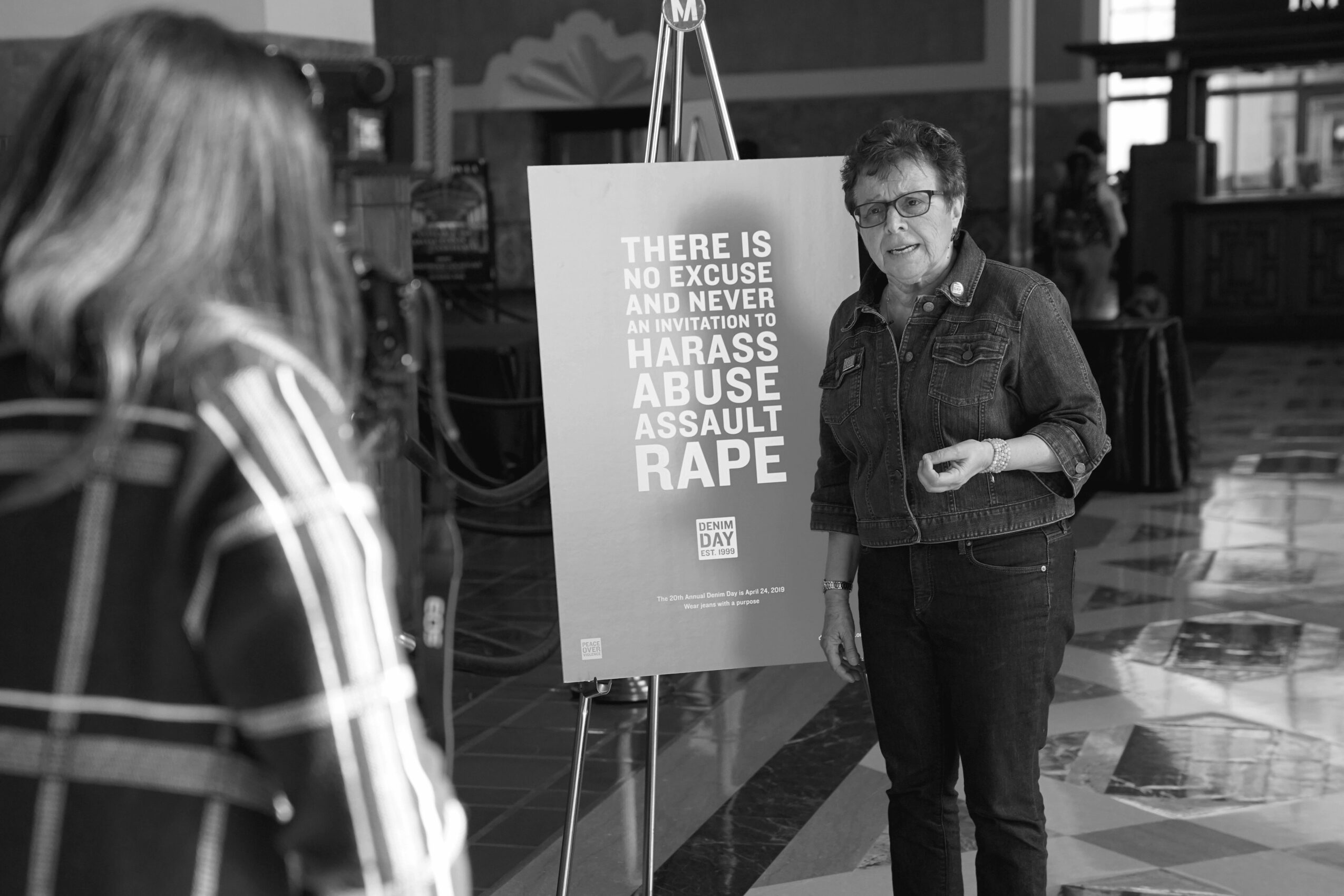
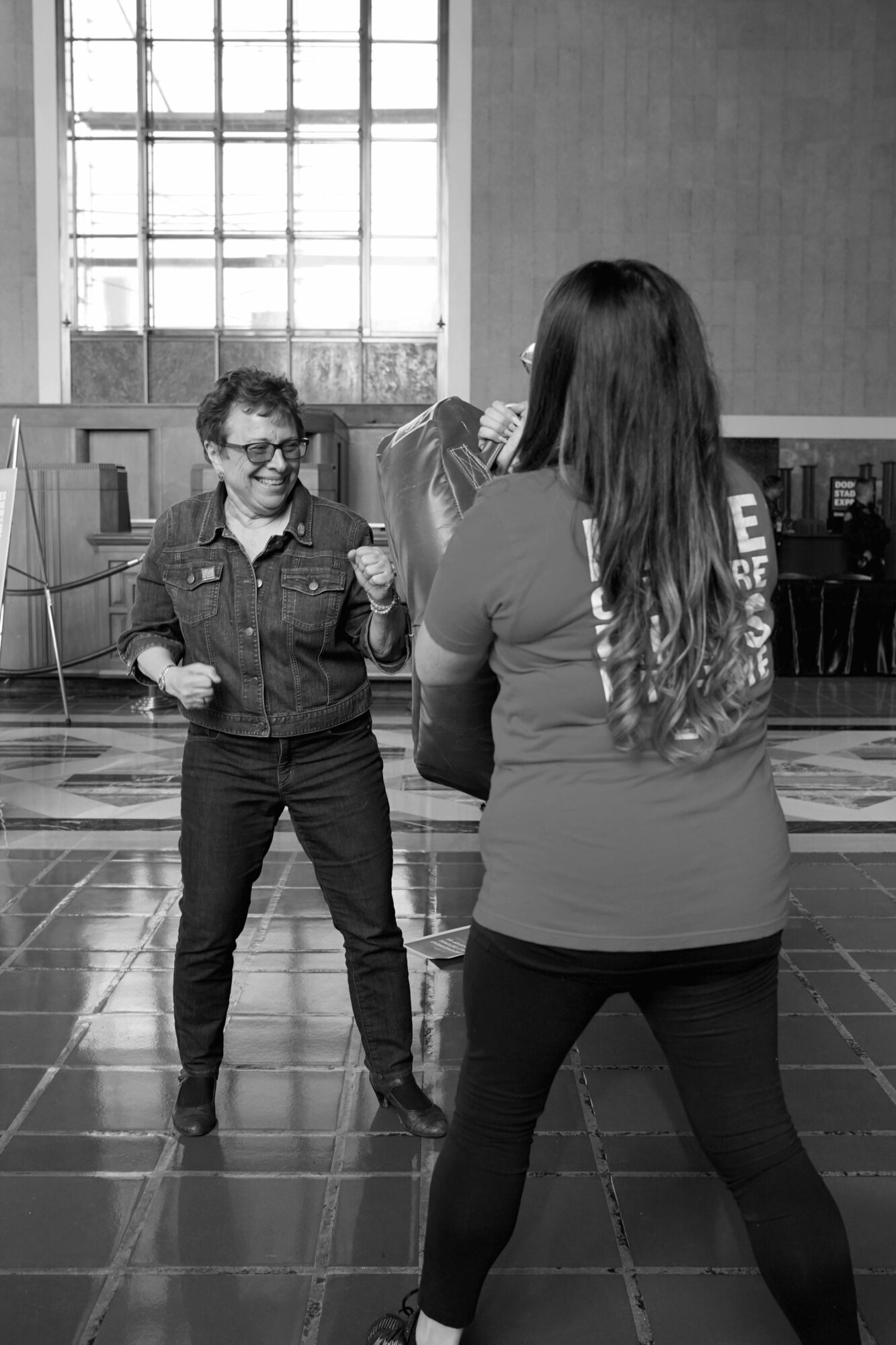
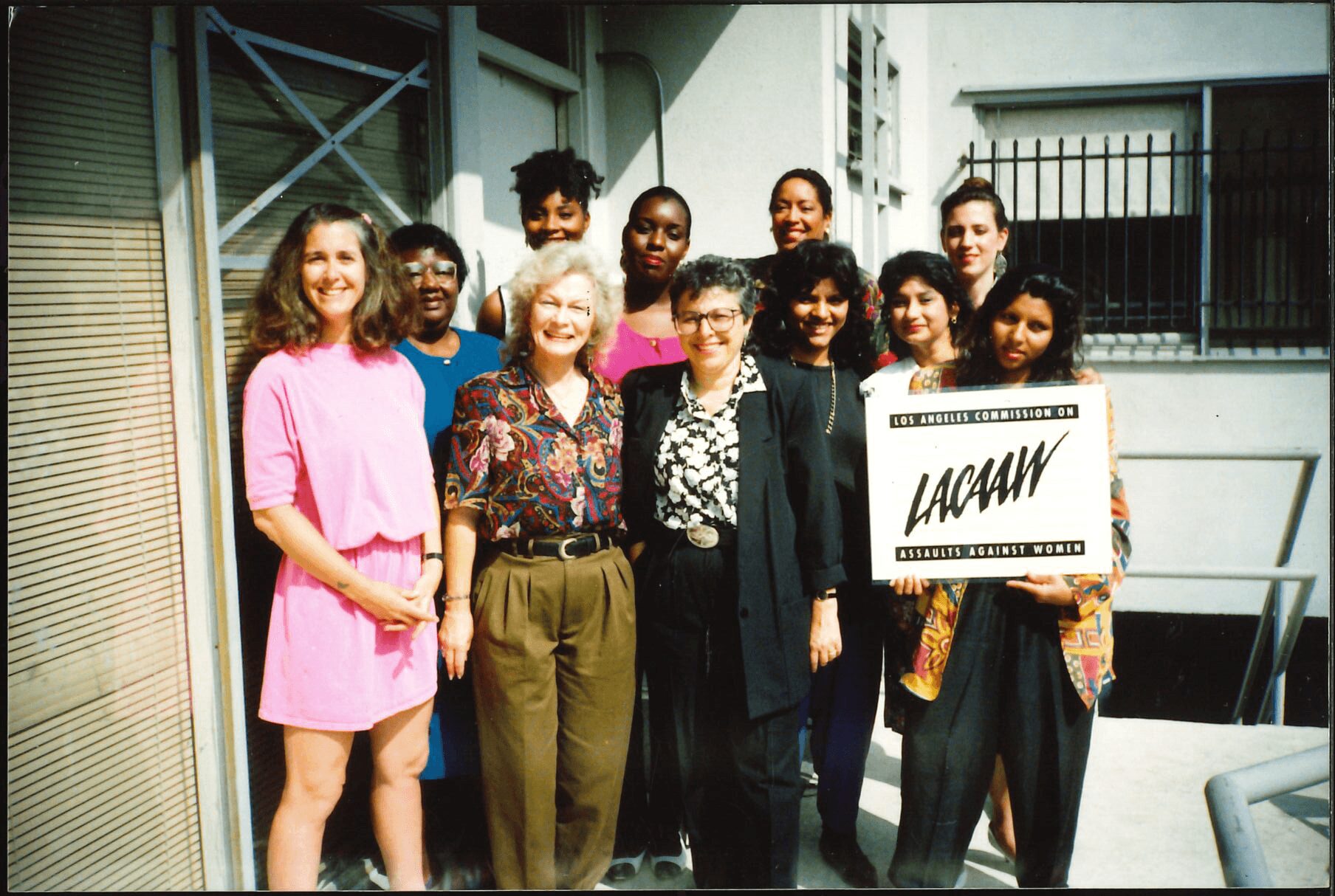
Image Credits
Jenni Fletes-Galindo for all B&W shots and personal photo (denim/podium with crowd)
Lisa Kuznetsova for red jacket/podium shot
Unknown for vintage LACAAW shot














